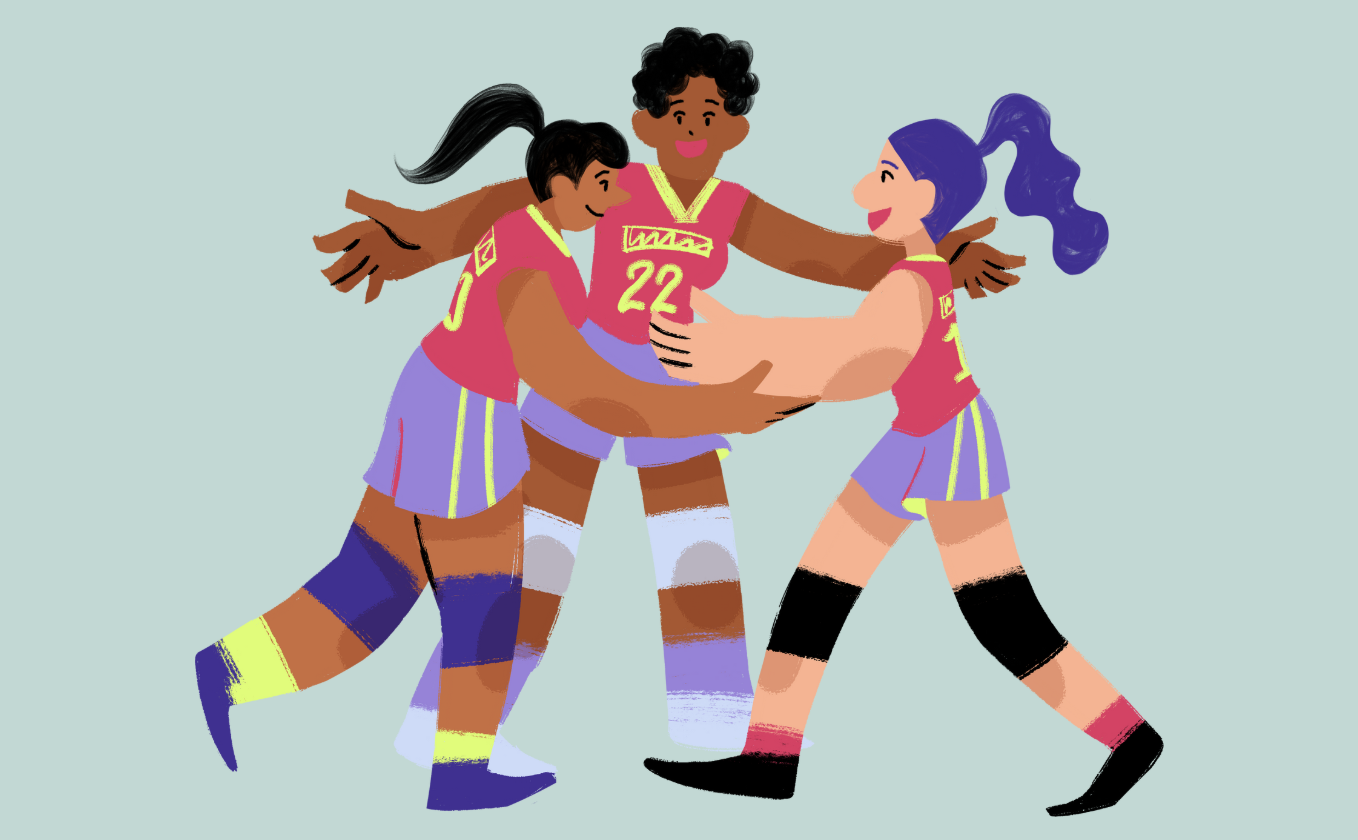Building Mental Strength and Team Cohesion for Better Athletic Performance
Mental strength helps athletes regulate emotion, stay focused, and perform consistently under pressure — especially in high-stakes moments.
A shared purpose and clearly defined roles build trust between teammates and shift focus from competition to collaboration.
Open communication is the foundation of both individual resilience and team adaptability — especially during setbacks or in-game pivots.
Recognizing effort, growth, and small wins fosters a process-oriented culture that keeps athletes engaged and motivated.
Prioritizing recovery (mental and physical) is essential to long-term performance and team sustainability — it’s not rest vs. progress, it’s rest as progress.
What to Consider When Reading
Does your team culture emphasize performance outcomes, or does it also recognize effort, growth, and resilience?
How often do your athletes have space to reflect, communicate openly, or reset mentally — as individuals and as a team?
Winning teams aren’t just made on the field — they’re built in the locker room, in team huddles, and in the mindset each athlete brings to training. Physical talent sets the foundation, but mental strength and team cohesion are what elevate performance when the pressure is on.
Strong teams are more than a group of skilled individuals. They’re connected, focused, and mentally prepared to meet the moment — together. Whether you're a coach, captain, or player, investing in mental strength and team chemistry isn’t just helpful. It’s essential.
Here’s how to build both — and why it matters more than ever in today’s high-performance environments.
Mental strength fuels consistency under pressure
The difference between good and great athletes isn’t always skill — it’s mindset. Mental strength is what helps players stay composed under stress, bounce back after mistakes, and perform at their best even when conditions aren’t perfect.
It’s not about being emotionless. It’s about knowing how to manage emotion. Athletes with strong mental skills can self-regulate, stay present, and trust their training when it matters most.
To build this kind of strength, start by helping athletes develop tools they can use in real time: breathwork to calm nerves, pre-performance routines to create focus, and visualization techniques to prepare for high-pressure moments. The more these skills are practiced in training, the more automatic they become in competition.
Shared purpose builds team trust
Cohesion starts with clarity. When every athlete understands the team’s mission — and their individual role in achieving it — something shifts. Players stop competing with each other and start playing for each other.
This shared purpose builds trust, and trust builds performance. When athletes trust their teammates, they take more risks, communicate more openly, and recover faster from errors. It’s not about being perfect — it’s about knowing you’re supported, even when things don’t go right.
Start by aligning your team around a shared goal that goes beyond winning. What values do you play by? What kind of team do you want to be? These conversations lay the groundwork for connection — and for the kind of culture that holds up under pressure.
Strong communication = faster problem solving
Mental strength and team cohesion both rely on open communication. Athletes need to feel safe speaking up — about what’s working, what’s not, and how they’re feeling mentally and emotionally.
This kind of communication isn’t just useful off the field. It leads to quicker adjustments during competition, more flexible strategies, and fewer breakdowns in performance. Teams that talk openly play more cohesively.
Model this by creating check-in spaces throughout the season. After practice, ask simple questions like, “What felt good today?” or “Where did we get stuck?” Over time, these habits help normalize feedback and reduce the fear of saying the wrong thing.
Celebrate effort, not just outcomes
Building mental strength means shifting focus from results to process. Athletes who feel pressure to be perfect often shut down after mistakes. But when the team culture values effort, learning, and resilience, players stay engaged and keep improving.
Make space to recognize growth moments — not just game-winning plays. Maybe someone communicated better, stayed focused under pressure, or supported a teammate through a tough moment. These micro-successes are often the clearest signs of progress.
Celebrating the process helps athletes stay motivated, even when the scoreboard doesn’t reflect their effort. And that mindset is what keeps teams strong all season long.
Build recovery into the team rhythm
Mental strength doesn’t mean never feeling tired or overwhelmed. It means knowing how to recover — and creating space for others to do the same.
When teams normalize rest and recovery as part of performance, athletes build more trust and stay healthier, both physically and mentally. That might mean lighter days after a tough game, mental health check-ins during heavy travel weeks, or even short mindfulness sessions before practice.
Recovery isn’t the opposite of performance. It’s part of it.
Final thoughts
High-performing teams don’t just work harder — they work smarter. And that starts with mental strength and cohesion.
When athletes have the tools to manage pressure and the support of a connected team, they perform with more confidence, communicate with more clarity, and recover with more resilience. Together, they become more than the sum of their parts.
So whether you’re building a team from scratch or looking to level up your current group, remember: mental strength and team cohesion aren’t extras. They’re your competitive edge.
